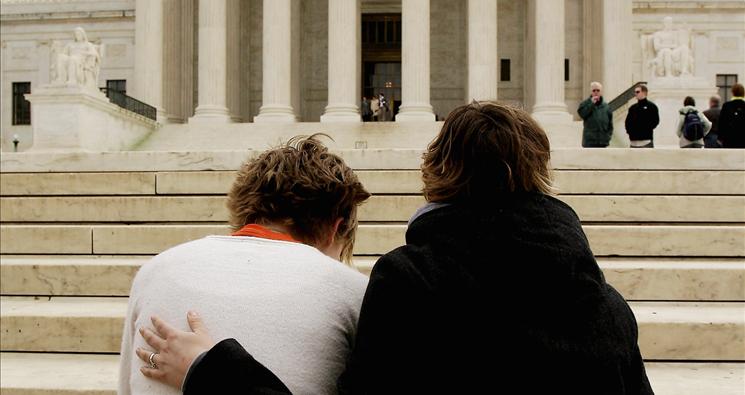Assault on Public Prayer at the Supreme Court: Town of Greece v. Galloway
The battle over prayer in public life has once again made its way to the nation’s highest court, in an important Supreme Court case about the constitutionality of having invocations at the start of government meetings. Opponents of public prayer seek to ban such invocations. The ACLJ has joined the fight, filing an amicus brief in support of a beleaguered town sued by attorneys from Americans United for Separation of Church and State. The case, Town of Greece v. Galloway, is set for oral argument on Nov. 6, and the Supreme Court will likely announce its decision sometime in the first half of 2014.
In a sense, the case breaks no new ground. Congress has opened its legislative sessions with prayer from the founding of this country. State legislatures have generally done the same. Moreover, the Supreme Court rejected a challenge, brought under Establishment Clause, to the practice of legislative prayer in Nebraska. That case, the 1983 decision in Marsh v. Chambers, would seem to have settled the matter.
Nevertheless, church-state separationist groups have continued to bring lawsuits against local government boards, claiming that Marsh does not foreclose their claims. And some of these challenges have been successful – like the one against the Town of Greece, New York. And so now the Supreme Court has undertaken once again to look at the issue.
The Greece case is, in some ways, even easier than Marsh was. In Marsh, the state had only one chaplain, a Presbyterian minister hired and paid by the state, who delivered the prayers year after year. In Greece, by contrast, the town hires and pays no one to pray; lets rotating private volunteers offer the invocations; and does not exclude any denomination or creed (even atheists may take their turn!). So what’s the deal?
The U.S. Court of Appeals for the Second Circuit said, in effect, that there were too many Christian voices offering invocations. Someone might reasonably get the impression, the court said, that Christianity was being preferred by the town, and that was unconstitutional.
This was an odd point to make: after all, the town was not prescribing the prayers. As we phrased it in our amicus brief: “That the local demographics frequently yield guest speakers who are Christian is no more unconstitutional than that the same demographics frequently yield elected officials and municipal staff who are Christian.”
Which brings us to a key question in the case: who is the relevant speaker? The town can only violate the Establishment Clause by its own actions; private individuals are free to pray to their hearts’ (or souls’!) content. So our amicus brief emphasized that the prayers and invocations are exclusively composed by the guests who offer them. This case therefore falls on the constitutionally safe side of the line between private and government action. As the Supreme Court has repeatedly observed, there is a “crucial difference between government speech . . . and private speech” when it comes to religion. So even though government prayer is permissible under Marsh v. Chambers, here the Court does not even have to get to that question. Consider an analogy: a student reading from Scripture in a Bible study group (assuming student groups are otherwise allowed) is clearly constitutional – indeed, constitutionally protected – regardless of whether teacher reading the same passage from the Bible in class would be constitutional.
One more matter: What is this case doing in federal court in the first place? The two women who brought the lawsuit against the Town of Greece allege that hearing Christian prayers at town board meetings hurt their feelings and offended them. Well, lots of folks could say the same about lots of things said at other government events. But being upset normally does not get you a ticket to federal court. The problem is that for years, the lower federal courts have generally waived, in Establishment Clause cases, the normal requirement that the plaintiff coming to court allege a legal injury. Just taking offense at what you see or hear – if it’s religious – is enough for these courts.
Importantly, the Supreme Court has never embraced this special suing privilege for separationists – to the contrary, in the 1982 case of Valley Forge Christian College v. Americans United for Separation of Church and State, the Supreme Court declared that the psychological consequence presumably produced by observation of conduct with which one disagrees” is “not an injury sufficient to confer standing” to sue in federal court. The ACLJ amicus brief urges that the Supreme Court use the Greece case as an opportunity to disavow “offended observer” standing and thus put an end to the special litigation privilege for separationists.
The ACLJ’s amicus brief in Town of Greece v. Galloway is available here.
This is a case to keep on your radar!
